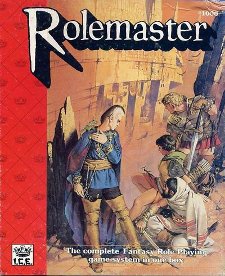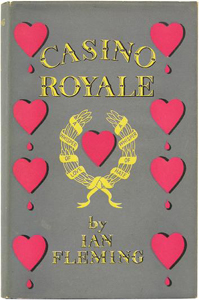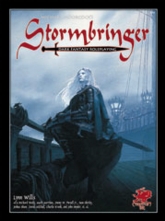A lot of things in your life and attitude change when you become a parent. That is, of course, not exactly a brilliant insight for the ages. But I was unprepared for one minor but very definite change in myself that took place almost immediately upon the birth of our daughter three years ago: I became utterly unable to handle the sight, or even the thought, of a child’s suffering in books, movies, or the newspaper.
Before our daughter’s birth, my tastes in entertainment were pretty “mainstream American”—that is, jaded. While I didn’t enjoy the extreme end of cinematic violence, I could watch a Tarantino movie without flinching (much). I played ultra-violent video games. I approached fictional violence and death involving children the same way I approached violence and death involving adults: sometimes unpleasant, sometimes tear-jerking, but nothing that merited emotional investment beyond what the film’s (or book’s) narrative called for.
Then our wonderful, beautiful daughter was born.
I noticed the change a few months after that. My wife and I were watching an episode of The X-Files during one of those rare breaks in between infant care. In the episode, two young children—a toddler and a slightly older boy—are murdered by the villain. Nothing graphic; the deaths take place offscreen.
I can confidently say that before parenthood, this wouldn’t have bothered me in the slightest, beyond establishing that the bad guy was really bad. But I was physically shaken. I wanted to turn off the episode. Afterward, I couldn’t stop thinking about it. How impossibly cruel, to kill these fictional children! How impossibly painful for this fictional family!
Beyond being upset—something I could easily explain as anxiety about my own daughter’s safety—I felt something stronger: real anger and resentment toward the episode and its creators. On one level I was angry that the writers had successfully exploited my new emotional weakness. But I was actively angry just at the thought of somebody using the suffering and death of a child in something so tawdry as a TV show. I tried to imagine the sort of empty-souled shell of a human being that would use a child’s death (even a fictional one) as a mere plot device.
Since then, this emotional hot-button of mine has shown no signs of going away. I can’t watch or read even the mildest instance of cruelty or violence inflicted on a child without wanting to physically get up and leave… and punch the screenwriter/author. Just seeing a kid threatened with violence—say, by a villain trying to blackmail a movie’s protagonist—is enough to freak me out. The other day I actually threw a book down in anger, something I don’t think I’ve ever done before, when a character in the story cruelly hurt a child. When I read or watch such a thing, I wonder about how the fictional child’s fictional parents will ever cope; and now even when an adult is hurt or killed, I wonder if the fictional adult has fictional kids whose lives have just been ruined.
I had never really thought about how common it is to use threats against children to drive plots and increase suspense. Intellectually I don’t have a problem with that storytelling device, but these days I demand that there be a really good narrative reason for it.
I imagine this will fade a bit with time. But right now, I find myself avoiding movies, books, or video games where I even suspect a child may suffer.
I can understand why my mind has reached this point, but the suddenness and completeness of the change caught me off guard. And I should note that I don’t especially miss being jaded about this topic—it’d be nice to feel less emotional wimpy while watching movies and TV, but I’m not really interested in going back to being a person who didn’t bat an eyelash at the fictional portrayal of violence against kids.
It makes me wonder at all the other commonplace narrative setups—rape, domestic violence, murder, grief, loss of a loved one, etc.—that go right past me without registering but prey on the emotional vulnerabilities of people who’ve experienced them in real life.


 I don’t know if it qualifies as a meme (or if the cool people are even still using that word), but Ken Hite started something nifty with his “Tour de Lovecraft” project. Hite read his way through H.P. Lovecraft’s stories and wrote up a short essay about each one—a combination of critical analysis and personal reflection. Although it started as a project on his
I don’t know if it qualifies as a meme (or if the cool people are even still using that word), but Ken Hite started something nifty with his “Tour de Lovecraft” project. Hite read his way through H.P. Lovecraft’s stories and wrote up a short essay about each one—a combination of critical analysis and personal reflection. Although it started as a project on his 


